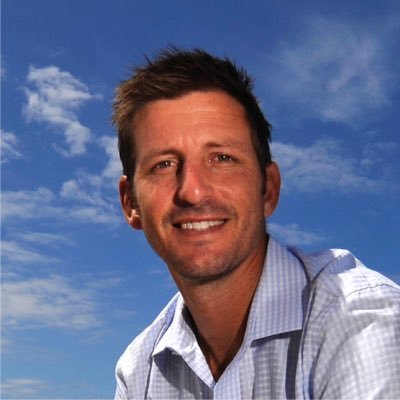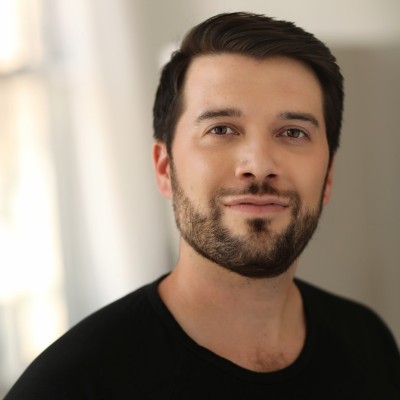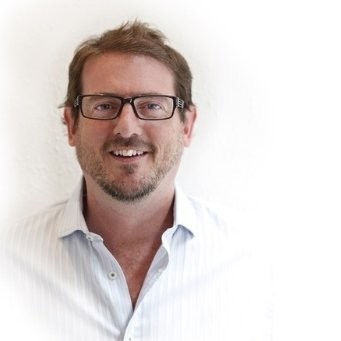
For over 20 years we at MitchelLake have worked with game changers, innovators and leaders who have been on extraordinary journeys from diverse and sometimes challenging backgrounds. These are their thoughtful and honest stories that focus on ignoring convention to create their own pathways and achieving their dreams and goals. Join hosts managing partner Jon Tanner, partner Michael Datta and advisor Patrick Blute, as we explore Talent Without Limits.
Datta: Our following guest is someone who is truly loved by all those who love their cricket across the globe, a 19 year career as a professional cricketer, so this person represent his home state of Queensland and his beloved country Australia. As he was coming to the end of his career, he wanted to really progress himself in the world of business. When he left cricket, he went and did his MBA at the University of Queensland. And then right away started his his company venture India, a consulting company that basically dealt with the transition of companies between Australia and India. He spent five years on the board of the Australian Indian Council he was appointed as a director on the board of Australian cricket for eight and a half years, where he was highly active in all forms of governance and leadership. In 2016, he served as the Interim Chief Executive Officer of Queensland cricket. This person combined his experiences as an athlete, a director, Administrator of one of Australia’s largest sports, and being able to truly bring a unique perspective to all the challenges of both sporting and non sporting organizations. Ladies and gentlemen, please join Patrick and I in welcoming Michael Kaspa.
Blute: Excited to kick this off and really continue our conversation with amazing leaders like Michael , finding sport and talent and really inspirational leadership in so many ways.
Kaspa: I have just recently returned from India. It was for the Australian cricket team playing a test match series. I won’t go and explain what cricket is necessarily more than power that but yeah, so play test series is iconic series in the moment to kneel and apply tests, sorry for test match series. And I’ve just returned from doing the first two on a commercial radio station, on how many times I’ve actually been in now… 25 years is I like to say my love affair with India started and was actually in the Australian greets I went over there in 1998 but in all the different capacities, not just cricket, but I’ve actually been also involved or the Australian Government or the Australia India Council. There was a five year term where I was actually on there was five or six of us. Everyone’s a leader in themselves, but going and talking with the Australian government around, I guess the relationship with India. And so that took me to India quite a few times. I’ve also consulted to a number of organizations and companies, taking them to India and introducing them to India. Also been actively involved. On a number of traditions. So major Australian traditions from the government side of things around education. Higher education has also been mining, as well as a couple of other little ones, but in essence and I’ve got to be conservative here. Probably five years, several times a year. I’m gonna just round it down to 40 times. Been in India.
Blute: So then, what’s great too is it seems like the sport is really an entry point for that cross cultural communication. How has that really influenced your style of leadership and how you think about both the game and your relationship with it?
Kaspa: One of the things I like what I did when I finished playing cricket professional after 19 seasons, I went got an MBA and Masters of Business Administration at the University of Queensland. Now what I want us to do with that was to take I guess the learnings of leadership, teamwork, have obviously been one of the best sporting teams in the world recognized things in the world and take those lessons, put them in a in a business context. Really what that meant to me was if the MBA was a ticket means that I could actually play in business with his ticket for an MBA. I love this analogy of thinking of experiences in your life. Almost like tickets and cards and kind of arranging your entry to new chapters. Like that’s such a really cool philosophy. So as you think about what else from your experience, either through training or playing in competitive settings or really just your career as a sportsman, what has, what other things have you carried with you from those experiences?
I’d like to break it down I suppose from my what sort of about this what was a great set of lessons that I want to share with everyone, but it’s actually also like to simplify things into three really pieces. For me. It’s been around sustainability on ships, but also growth these three key themes for me, right through my whole journey. And when I say sustainability, I break it really quickly the sustainability of I’ve played professional career for 19 seasons. I think it’s I’ve got a record for Queensland, for the most number of wickets being a bowler so I mean pay for like a pitcher in baseball. And I think that was around probably the longest at most players the second most domestic wickets in Australian cricket, to a guy named Clary Bremen, who retired I think in the 50s. He would have been about 720 years whole he was a former legspinner For those that know cricket, but it was one of those things that for me sustainability and that really means resilience. You know, I’ve found a way to get back in the team to come back from injury from all these setbacks along the way. So it’s something that gets embedded for personal something I know. It’s a good thing, the partnership side of things. Partnerships is around people. I love and I need to be around people. So in my next chapter, I like to think that I’m looking at roles and I’m actually looking to be involved with people engaged. And when I say people, maybe this is the sporting analogy, we’re talking about teams. You realize that the performance of the cyber team the organization is so much more powerful when you’ve got a combination of all these different skill sets, but when they come together it just amplifies and growth being the third one, I think, right, from personal point of view was always looking to get better. continual improvement was one of those things I think as an athlete, we’re looking to do that naturally all the time, but I think even personally, and that’s probably why I went in you know, look to transform that learn experience of sporting teams, but some of the best leaders striker has ever had. into into mind pop by and through the NBA. You know, let’s get that match. The load experience with the with the studied, I guess on the theoretical side of it and sort of look at what we can actually produce when you combine two.
Datta: That’s fantastic. Thank you, mate. Thanks for sharing that with us. I know you and I had the we caught up over lunch. I think it was before Christmas, wasn’t it? And then we were talking through that actually, what are the three things that resonate with you? And you know, you know, one of the things that I I get from our conversations is I may have even actually did a LinkedIn post on this after I caught up with Kaspa. And the thing I got out of catching up with Kaspa was just how thoughtful and considerate he is, like truly in his approach in business. You know, he’s not that kind of, it doesn’t by any means, you know, go hard in the things is very staid and staged in his approach, and that’s where this thoughtfulness comes into it. You were talking about this a little bit earlier. And I’d like to go a bit deeper into this thought leadership. Thought Leadership. What is your view Kaspa around thought leadership and how do you then roll that out into you know, your daily life and what you’re doing with your clients?
Kaspa: Thought Leadership, it’s like it’s you got to have a couple of things that resonate with you personally, but then it’s translating that into the different organization, or the circumstances they’re in, I suppose. Yeah, I think when we talk about thought leaders, you know, there’s experts out there in certain branches, what they do and how they do it. Yeah, what they what would they present? I think one of the things that I’d like to do, I’d really love to do when I talked about people. And when I talked about, you know, that partnership thing, particularly there I think one of the areas I’d love to personally look at threatened finding myself to actually research a lot more is trust. Me, that’s the one area that any relationship obviously any business to an unnatural degree, but even just internally, like we’ve lived, I’ve lived that life of trust with a team and people. There’s a couple of organizations as I type things, but yeah, and I wonder a time somebody you can you guys help me out here I’m in business. Yeah, trust this doesn’t necessarily have a place a seat at the table in a lot of businesses because someone’s just trying to beat you and get get them over.
Blute: I mean, business ethics is such an important consideration, like what type of world do we want to transact, in what type of leaders really drive that transformational growth versus just that transactional relationship? So I couldn’t agree with you more of that. I think that’s such an important area, especially with the amount of change and transformation going on to have that expertise and understanding of if trust is broken. How do you reestablish it? Can it be real established? That brings up a lot of themes that I think everyone today is is navigating in the changing global landscape.
Kaspa: Yeah, yeah. No, what do you reckon Michael? Do you all think I’m in a business of different countries?
Datta: What timezone is it right now guys, anyway, we’re local, what resonates with me is that, you know, managers and executives in this day and age, if you don’t trust your people, how can you truly lead right? Sure. You can manage by come this micro-manager through autocracy, but what’s the point? How’s that enjoyable? How’s that leadership? So I think “trust” is it. The one word. You know, thought leadership. Well, if you want to make sure you include trust into that, and I think you know, Pat and I speak almost every day because we talked to so many different clients and there is so much going on out there right now, especially with, you know, startups going through very hard times major tech companies, you know, letting off so many, so many good people. It’s becoming this whole thing around well, what’s going to then now drive success for these companies. You know, it’s the people. It always comes back to the people. Yeah,
Kaspa: The other thing too, and one of my very high takeaways from experiences last couple of years. That holds the trust thing. Do you? Do people have to earn your trust or do you give them trust for them? To lose it?
Blute: Good question. And inherited trust from previous publicity or track record. So as you think about, like transformational experiences you’ve had throughout your career in all these different capacities, what stood out for you in terms of really trust and life defining leadership that you’ve exemplified or that someone has shared with you?
Kaspa: Oh, well, one of the is I’ve actually do a bit of a presentation. Of course, not just getting up, qualify for lessons that I’ve learned how to support now the best part about that and living my dream if you’re like the 19 seasons, like the national team and all those that experience of living my dream are broken it down to four, all lessons. Conveniently, they all start with the letter P. So you the takeaway, too, is that I like to think there’s not one cliche among stuff because what quite often happens from sports people are people coming in to help, you know, to speak at a function. Everyone’s, you know, some motivational speech. And then that’s just cliches, a lot of it, you know, and I think what I say what the reason why I’m presenting that like this is that these lessons for me was so important because I can control and it’s not about, I guess, relying on everything else, to actually, you know, to sum the fall in a place there are things that are so controllable. First one, I’ll talk about these perception, understanding perception how that works. Number two is pain. I’ll keep it short. Normally, I’ll talk about pressure and dealing with pressure and how you deal with pressure and understanding. But I’ll I’ll keep it short this one, but number one, the top one in answer to your question really, is possession, or ownership journey. And I think that’s for me, that’s the crucial one. I’ll start off this really quickly. I’ll start with perception. I’ll give you that that really quickly. Sports people like politicians, I guess the only group in society that understand really how perception works. When I say understand perception works. opinion based on opinion, based on which team you apply for. Have a lot of your he in Australia and quality Queensland, we’ve got maroon Well, as you said, while the blues I love Queensland hate the blues, politics bit the same either left or right. So it’s quite divisive about you know, who I love, and I think that’s what makes for a sportsman without ever meeting opponent but depending on what team you play for, or what position you play, immediately this perception that opinion or think this guy I like him, I don’t like him. And what I loved was that he’s actually surprising people by surprise people, not just that when first question I always get asked me officials or professional sportsmen, who retired 10 years ago was Kaspa. It’s called unflattering… at still playing, which is very flattering. That we might have retired four years ago. But then I’ll actually say the next question that you get is are you coaching or commentating? Now, typical career path you either as a play or coaching or you commentate? You go Yeah. And so when I say no, no, I actually went a different path I studied I did an MBA, bang. Perception from time to finish. All right. So you understand business. And there’s little examples spot examples in the way that we’ve played cricket. I use that as spot examples. But how it changed perception one really quickly India had some mass media come to me and say why do you like India so much? Why do you like playing the the I used to talk it up? It’s, it’s the opposite. The exact opposite of what for my role was a fastball but the conditions that replay on it’s the worst conditions for me. So I just said it’s 45 degrees. This weekend is flat. We’ll bounce the ball and cricket onto the ground and my baseball but it’s almost like it was it was actually doesn’t suit my game at all. It’s the worst thing worse conditions. Not only just the 45 degree heat, like I said, however, I said to the this journalist said put it this way on the fashionable bowler that unfashionable toads. I do struggle a lot with using them as an early adopter. If they keep they’re going to influence my customer who ultimately my customer is the selectors. They’re gonna find me they’re gonna take me by me off the shelf and keep selecting me. So I had the media talking about me and they their words, they just call me the sub conference specialist that my skills suited to the conditions their loves and thrives in this condition. And I’d rather be in the West Indies drinking margaritas or you know, Pina Coladas by poolside but that wasn’t the case anyway, just an example of you know, like just looking at what you’re actually where you are, and but also understanding how you can influence can honestly change perceptions. You can influence it that’s that’s perception. I think. I think number two, I’ll just go to number two is pain. Pain being you know, if was easy, everyone would be done it. And often you get reward and that’s what I say about the growth side of things with one of the key words. It’s looking for opportunities that are out there that maybe no one else is playing it or doing it differently from others. And I think that’s where that you know, you know, it’s gonna hurt going in doing an MBA, you know, being the first Australian test cricketer to actually go into an MBA generally does go coach on content. But going down that track was something that no one has done before this play paired with undergraduates and a lot of that particular masters in the MBA program, which is a general all purpose if you like. Subject was something yet once again to wasn’t gonna be easy to do. But like I said, pressure scaling with the forces that get you to doubt your skills. There’s we can go into that some other time. Maybe, but I guess ultimately, it’s possession and ownership over your journey. That’s the key because there’s so many influences on my performance. As a sportsman that I have no control over. In cricket. We have the weather we play outdoors so right. Next thing you can’t control the weather. You might have even because we play not too much of a diamond that being bowling after the ball hits the ground. So the surface that you’re playing on, as I suggested India, you know, some of those wickets that we play on the pitch can be so different that it can determine how successful I am. I have no control over what the groundsman creates. The other one is the umpire is an umpire who makes the decision whether the balls just hitting the stumps or it’s just missing or you’ve just hit it, they’ve got an edge or you know, you’ve just missed it and some of them got crooked fingers or you know and so they can also you know they determine how successful you are in your performance. So for me it was really important to control everything that I can and not blame not sit back and blame and saying oh the selectors didn’t pick me or the weekend was no good or the umpire got it wrong or all those things I have no control. All I do is compare myself. Yeah, and play at my best give myself the best chance because at the end of the day, and also, Michael, one of the things the only team that talks about luck, they think about it happens to be the loser you know why in hell, because they talked about being unlucky. The winner never says how lucky we were to win as they’re raising the trophy and celebrating and spraying champagne. How lucky were we and we know somebody that they’ll a dressing room. Once he’s come second. They talked about being unlucky because that that moment didn’t go our way.
Blute: You know what I love about every single one of your four P’s is it goes back to a foundation of trust. And it goes back to the first relationship of trust. You have to establish this with yourself. No matter what field you’re entering the classroom for the MBA in the field like that foundation is maker brick. layer in the genius a lot of the form
Datta: Yes. I have absolutely loved this conversation around the fact mate, you’re in control. You don’t. You’ve taken everything that you’ve learned in your sport in the past. You’ve taken all the good things out of it. And you’ve transferred that into life after sport into creating yourself into this into this new position. And how you’ve also positioned your own personal branding. My I love the fact that you don’t blame you don’t make excuses. You just constantly moving forward made and that’s what I think many people out there. This will resonate with they will look at this and go right yeah. You know what? Trust drive. No excuses. Take control. I mean, there’s so much there.
Kaspa: Yeah, I just think even just over the last couple of years that we’ve all been through and yeah, the hardship and the strange. I won’t say the weed just just in front of simplifying again. It is you can you can sit back and actually, you had no control over no control over the fact that we weren’t allowed out of your house or outside, you know, go for exercise or one hour. You know, we had to wear a mask on they’ve written complaints. They had no control over these rules. So given that that was the boundaries, that’s where to play. And I think that was what was really key. And I’m no, I’m not saying that. It was easy. It was bloody hard. It was so hard for so many people and industries are closed and businesses that suffered and there was all that but I think hopefully these words or not a bad sort of guy and they are motivating you and thriving like this topic. Just some tools for people to get it back together. Just to sort of like believe in yourself. You said that that’s that’s trust yourself. That this is actually this is where maybe the pressure, the third page, we’re going to incorporate that now. I want to try and keep it short, but I think the whole thing was very stuck. And using the sport analogy, right. When you’re under pressure, it’s when you doubt your skills. It’s as simple as that. Because when I’ve got a ball in my hand and there’s a batsman the other end and I’m trying to beat him I gotta get get him out. That would be good three strikes or before sudden when you when you’re one of the things I even spoke to young batsman and even coaches for us is when you’re when it’s when you’re in for when it’s all of happening for you. What happens is you’re actually not even thinking about that other end you’re thinking about getting that person out. Whether it be bowling the ball in the right area pitching the ball or in the in the right box or but you’re not there’s no doubt inside your only mind is is in cricket 22 yards away. Think about that. When you are out of four, when it’s not working, you’re thinking the same. You’re thinking about your techniques wrong. You’re thinking about you’re thinking about everyone’s feet out right heads I’m thinking about all the things for you to consume this and so one of the things I talk about is when you sort of like trick your mind when you’re feeling out of form. Just think about the other end.

Michael Kasprowicz
Following his 19 year career as a professional cricketer, Michael Kasprowicz completed his MBA at the University of Queensland and developed Venture India, a consulting company fostering business opportunities in India. Michael was a Director on the Board of Cricket Australia for 8 ½ years and was highly active in the governance and leadership of one of Australia’s largest sports. In 2016, Michael served as the interim Chief Executive Officer of Queensland Cricket before returning to the Cricket Australia Board. Learn how his experiences as an athlete, director, and administrator can help you navigate the complex world of sport and business.

Michael Datta
Talent Without Limits Co-Host, MitchelLake Growth Partner
Globally experienced entrepreneur, investor, and advisor. Expert in international trade and ventures. Oracle of coffee, wine, sports, and talent insights.

Patrick Blute
Talent Without Limits Co-Host and Producer
Global growth advisor with MitchelLake based in New York. Long-time leader of product and marketing strategies for hyper-growth technology, social good, and sustainability ventures.

Jon Tanner
Founder and CEO
Investor and entrepreneur. Inspired by innovators and individuals who challenge what’s accepted in pursuit of what could be. Constantly curious, lover of great stories, and great storytellers.
The post PODCAST Talent Without Limits: The 4P Framework (Perception, Possession, Pain, and Performance) with Australian Cricket Legend Michael Kasprowicz appeared first on Mitchel Lake Group.

